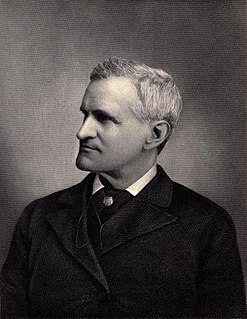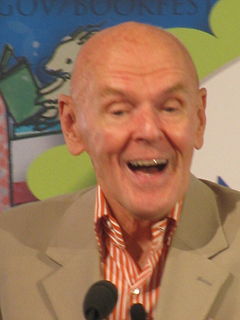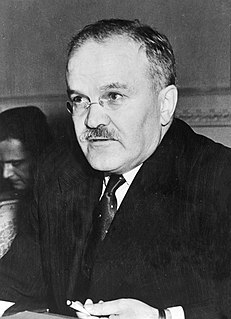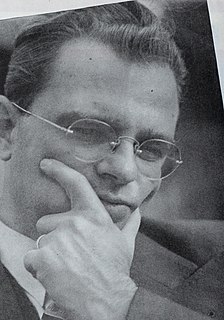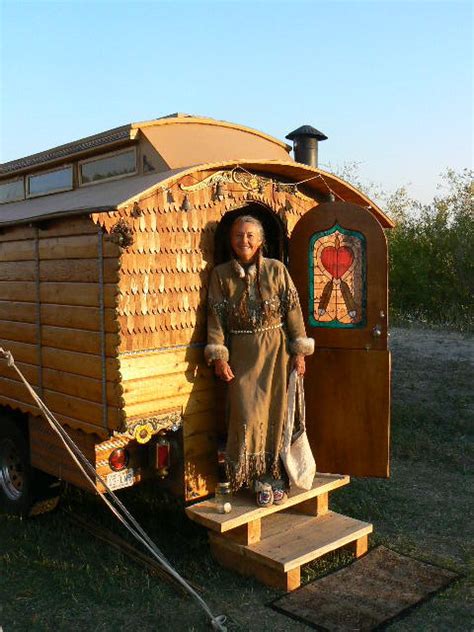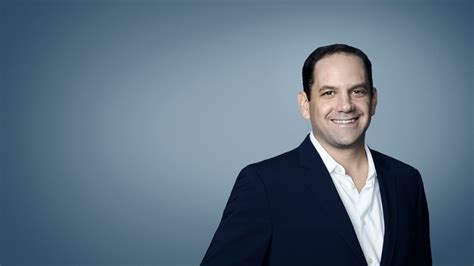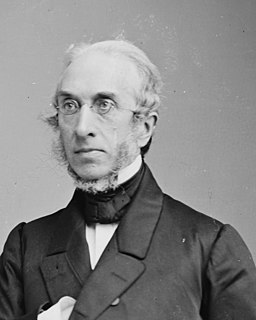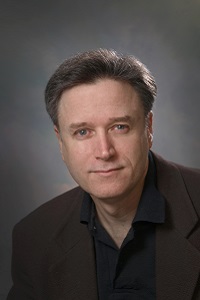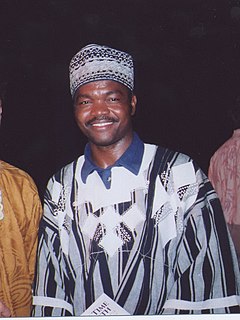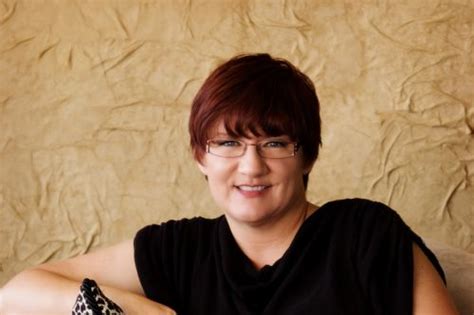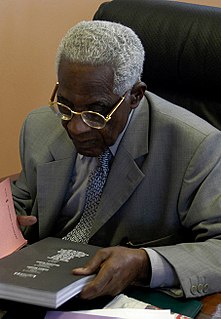Top 774 Remote Quotes & Sayings - Page 13
Explore popular Remote quotes.
Last updated on April 15, 2025.
Will robot teachers replace human teachers? No, but they can complement them. Moreover, the could be sufficient in situations where there is no alternative––to enable learning while traveling, or while in remote locations, or when one wishes to study a topic for which there is not easy access to teachers. Robot teachers will help make lifelong learning a practicality. They can make it possible to learn no matter where one is in the world, no matter the time of day. Learning should take place when it is needed, when the learner is interested, not according to some arbitrary, fixed schedule
During my span of life science has become a matter of public concern and the l'art pour l'art standpoint of my youth is now obsolete. Science has become an integral and most important part of our civilization, and scientific work means contributing to its development. Science in our technical age has social, economic, and political functions, and however remote one's own work is from technical application it is a link in the chain of actions and decisions which determine the fate of the human race. I realized this aspect of science in its full impact only after Hiroshima.
Faithfulness to the truth of history involves far more than a research, however patient and scrupulous, into special facts. Such facts may be detailed with the most minute exactness, and yet the narrative, taken as a whole, may be unmeaning or untrue. The narrator must seek to imbue himself with the life and spirit of the time. He must study events in their bearings near and remote; in the character, habits, and manners of those who took part in them. He must himself be, as it were, a sharer or a spectator of the action he describes.
Read to your children Twenty minutes a day; You have the time, And so do they. Read while the laundry is in the machine; Read while the dinner cooks; Tuck a child in the crook of your arm And reach for the library books. Hide the remote, Let the computer games cool, For one day your children will be off to school; Remedial? Gifted? You have the choice; Let them hear their first tales In the sound of your voice. Read in the morning; Read over noon; Read by the light of Goodnight Moon. Turn the pages together, Sitting close as you'll fit, Till a small voice beside you says, "Hey, don't quit.
He seemed a part of the mute melancholy landscape, an incarnation of it's frozen woe, with all that was warm and sentient in him fast bound below the surface; but there was nothing nothing unfriendly in his silence. I simply felt that he lived in a depth of moral isolation too remote for casual access, and I had the sense that his loneliness was not merely the result of his personal plight, tragic as I guessed that to be, but had in it, as Harmon Gow had hinted, the profound accumulated cold of many Starkfield winters.
Music expresses feeling, that is to say, gives shape and habitation to feeling, not in space but in time. To the extent that music has a history that is more than a history of its formal evolution, our feelings must have a history too. Perhaps certain qualities of feeling that found expression in music can be recorded by being notated on paper, have become so remote that we can no longer inhabit them as feelings, can get a grasp of them only after long training in the history and philosophy of music, the philosophical history of music, the history of music as a history of the feeling soul.
what he sought was always something lying ahead, and even if it was a matter of the past it was a past that changed gradually as he advanced on his journey, because the traveller's past changes according to the route he has followed: not the immediate past, that is, to which each day that goes by adds a day, but the more remote past. Arriving at each new city, the traveller finds again a past of his that he did not know he had: the foreignness of what you no longer are or no longer possess lies in wait for you in foreign, unpossessed places.
Near yonder copse, where once the garden smil'd,
And still where many a garden flower grows wild,
There, where a few torn shrubs the place disclose,
The village preacher's modest mansion rose.
A man he was to all the country dear,
And passing rich with forty pounds a year;
Remote from town's he ran his godly race,
Nor e'er had chang'd nor wish'd to change his place;
Unskilful he to fawn, or seek for power,
By doctrines fashion'd to the varying hour;
Far other aims his heart had learn'd to prize.
More bent to raise the wretched than to rise.
Germany, which has lately united 80 million Germans, has submitted certain neighboring countries to her supremacy and gained military strength in many aspects, and thus has become, as clearly can be seen, a dangerous rival to principal imperialistic powers in Europe - England and France. That is why they declared war on Germany on a pretext of fulfilling the obligations given to Poland. It is now clearer than ever, how remote the real aims of the cabinets in these countries were from the interests of defending the now disintegrated Poland or Czechoslovakia.
Supporters of the war are constantly asking those who oppose it: Why don't you deplore the wrongs and atrocities committed by the other side? The answer, so far as I am concerned, is that I do deplore the wrongs and atrocities committed by the other side. But I am responsible for the wrongs and atrocities committed by our side. And I am no longer able to participate in the assumption that atrocities committed by remote control are less objectionable than those committed at arm's length. I am most concerned with American obstacles to peace because I am an American.
The memories which peaceful country scenes call up, are not of this world, nor of its thoughts and hopes. Their gentle influence may teach us how to weave fresh garlands for the graves of those we loved: may purify our thoughts, and bear down before it old enmity and hatred; but beneath all this, there lingers, in the least reflective mind, a vague and half-formed consciousness of having held such feelings long before, in some remote and distant time, which calls up solemn thoughts of distant times to come, and bends down pride and worldliness beneath it.
In this vast universe There is but one supreme truth- That God is our friend! By that truth meaning is given To the remote stars, the numberless centuries, The long and heroic struggle of mankind . . . O my Soul, dare to trust this truth! Dare to rest in God's kindly arms, Dare to look confidently into His face, Then launch thyself into life unafraid! Knowing thou art within my Father's house, That thou art surrounded by His love, Thou wilt become master of fear, Lord of Life, conqueror even of death!
I could distinguish the shape of her bosom, her arms, her thighs, just as I remember them now, just as now, when the Moon has become that flat, remote circle, I still look for her as soon as the first sliver appears in the sky, and the more it waxes, the more clearly I imagine I can see her, her or something of her, but only her, in a hundred, a thousand different vistas, she who makes the Moon the Moon and, whenever she is full, sets the dogs to howling all night long, and me with them.
My relationship with God developed at an early age. I was raised on a remote little ranch, where I had for company and for the fullness of my life three other humans and an enormous amount of animals and land and sky and wind. As a child, my experience of God included everything-a love of the whole beauty around me. And the country was so beautiful: mountains that ended in aspen groves and streams, thick with wild animals and game of all kinds. One time I said to my mother, "You know, I think heaven is just like this, only the animals would speak to us; they wouldn't be afraid of us."
We in CNN have 27 reporters out in the field - from Alaska to Florida, and everywhere in between. 29 if you count the White House and the Hill. We are in every key state, in every key district and on the ground where key issues are playing out. Political campaigns' success is all about the ground game and CNN feels the same way about election coverage. Expect to see original reporting from all our remote locations all night long. On air and online.
On the way out to the car, Philip turns to me. “How could you be so stupid? I shrug, stung in spite of myself. “I thought I grew out of it.” Philip pulls out his key fob and presses the remote to unlock his Mercedes. I slide into the passenger side, brushing coffee cups off the seat and onto the floor mat, where crumpled printouts from MapQuest soak up any spilled liquid. “I hope you mean sleepwalking,” Philip says, “since you obviously didn’t grow out of stupid.
In what region of the earth ever so remote from us, in what corner of creation ever so far out of the range of our communication, does not some burden lightened, some bond loosened, some yoke lifted, some labor better remunerated, some new hope for despairing hearts, some new light or new liberty for the benighted or the oppressed, bear witness this day, and trace itself, directly or indirectly, back to the impulse given to the world by the successful establishment and operation of free institutions on this American continent?
How funny is it that so many professors labeled Tea Partiers as terrorists, while kissing the asses of real, bona fide terrorists? It's not funny, really. But it's the result of a simple equation: One is cool, and the other isn't. Own a gun and keep it by your bed in your remote farmhouse? You're a redneck. Purchase guns that end up killing a judge? Priceless. As long as you cling to cool, progressive beliefs that deem America evil, whatever you do is cool. And if you do it under a big fuzzy 'fro? Even cooler. Hell, if you 'fro is big enough, you could nuke an orphanage and still get tenure.
You must squeeze out of yourself every sensation, every thought, every image, - mercilessly, without reserve and without remorse: you must search the darkest corners of your heart, the most remote recesses of your brain, - you must search them for the image, for the glamour, for the right expression. And you must do it sincerely, at any cost: you must do it so that at the end of your day's work you should feel exhausted, emptied of every sensation and every thought, with a blank mind and an aching heart, with the notion that there is nothing, - nothing left in you.
An atheist is someone who is certain that God does not exist, someone who has compelling evidence against the existence of God. I know of no such compelling evidence. Because God can be relegated to remote times and places and to ultimate causes, we would have to know a great deal more about the universe than we do now to be sure that no such God exists. To be certain of the existence of God and to be certain of the nonexistence of God seem to me to be the confident extremes in a subject so riddled with doubt and uncertainty as to inspire very little confidence indeed.
Bacon's portraits are an interrogation on the limits of the self. Up to what degree of distortion does an individual still remain himself? To what degree of distortion does a beloved person still remain a beloved person? For how long does a cherished face growing remote through illness, through madness, through hatred, through death still remain recognizable? Where is the border beyond which a self ceases to be a self?
It is moonlight. Alone in the silence I ascend my stairs once more, While waves remote in pale blue starlight Crash on a white sand shore. It is moonlight. The garden is silent. I stand in my room alone. Across my wall, from the far-off moon, A rain of fire is thrown. There are houses hanging above the stars, And stars hung under the sea, And a wind from the long blue vault of time Waves my curtains for me. I wait in the dark once more, swung between space and space: Before the mirror I lift my hands And face my remembered face.
The notion that science does not concern itself with first causes - that it leaves the field to theology or metaphysics, and confines itself to mere effects - this notion has no support in the plain facts. If it could, science would explain the origin of life on earth at once - and there is every reason to believe that it will do so on some not too remote tomorrow. To argue that gaps in knowledge which will confront the seeker must be filled, not by patient inquiry, but by intuition or revelation, is simply to give ignorance a gratuitous and preposterous dignity.
You've got a generation of young men - almost all are young men - in situations of great economic hardship, where they don't really have work. The chances of them making a decent life for themselves, of making a family, living in a kind of decent, happy way, are very, very remote. It's very hard for them to ever even have that as a dream, so when people are that deprived of the ordinary hope of human beings, it creates anger. And that anger can be channeled by unscrupulous persons, whether secular or religious leaders, and there's been a lot of that.
Prayer is not a way to get what we want to happen, like the remote control that comes with the television set. I think that prayer may be less about asking for the things we are attached to than it is about relinquishing our attachments in some way. It can take us beyond fear, which is an attachment, and beyond hope, which is another form of attachment. It can help us remember the nature of the world and the nature of life, not on an intellectual level but in a deep and experiential way. When we pray, we don't change the world, we change ourselves. We change our consciousness.
We may, indeed, say that the hour of death is uncertain, but when we say this we think of that hour as situated in a vague and remote expanse of time; it does not occur to us that it can have any connexion with the day that has already dawned and can mean that death -- or its first assault and partial possession of us, after which it will never leave hold of us again -- may occur this very afternoon, so far from uncertain, this afternoon whose time-table, hour by hour, has been settled in advance.
3 people get stranded on a remote Island A Banker, a Daily Mail reader & an Asylum seeker All they have to eat is a box of 10 Mars bars The Banker says "Because of my expertise in asset management, I''ll look after our resources" The other 2 agree So the Banker opens the box, gobbles down 9 of the Mars bars and hands the last one to the Daily Mail reader He then says " I'd keep an eye on that Asylum seeker, he's after your Mars Bar
There is that in the soul of man which must respond to the highest in virtue. It may not respond at once. Human nature can easily be over-faced by examples too remote and austere. Moreover, human nature can easily deny God because the whole race has long been in rebellion against Him. Yet there is that in human nature which calls out to the supreme examples of virtue: owns, as it were, the intention of God who made it, and feels the unmistakable homesickness of the soul.
That's really the essence of what any fiction writer does. Some of it is research-based, but most of it is a really long-term, imaginative, empathetic effort to see the world the way someone whose experiences remote from yours might see it. Not every writer works that way; some writers make a wonderful career out of writing books that adhere very closely to how they view the world. The further I go with this, the more interested I get in trying to imagine my way into other perspectives that at first seem foreign to me.
We were in the middle of a sandbar in the middle of the ocean with no one around, and still someone was following me from New York, and was hiding in some bushes like a mile away with a long lens, so he still got pictures. It was really an eye opener to how you really have to be careful about being followed everywhere. I was trying to go to the most remote place in the world, I was out on a sandbar in the middle of the ocean, and they still found me. It was definitely a very new experience.
Have you ever been in love, Hadrian?” “I’m not sure. How do you tell?” “Love? Why, it’s like coming home.” Hadrian considered the comment. “What are you thinking?” Bulard asked. Hadrian shook his head. “Nothing.” “Yes, you were. What? You can tell me. I’m an excellent repository for secrets. I’ll likely forget, but if I don’t, well, I’m an old man in a remote jungle. I’m sure to die before I can repeat anything.” Hadrian smiled, then shrugged. “I was just thinking about the rain.
Truth and falsity, indeed understanding, is not necessarily something purely intellectual, remote from feelings and attitudes. ... It is in the total conduct of men rather than in their statements that truth or falsehood lives, more in what a man does, in his real reaction to other men and to things, in his will to do them justice, to live at one with them. Here lies the inner connection between truth and justice. In the realm of behavior and action, the problem recurs as to the difference between piece and part.
I know that Dad was an idol to millions who grew up loving his music and his ideals. But to me he wasn't a musician or a peace icon, he was the father I loved and who let me down in so many ways. After the age of five, when my parents separated, I saw him only a handful of times, and when I did he was often remote and intimidating. I grew up longing for more contact with him but felt rejected and unimportant in his life.
... ... While Dad was fast becoming one of the wealthiest men in his field, Mum and I had very little and she was going out to work to support us.
One of the surest tests of the superiority or inferiority of a poet is the way in which a poet borrows. Immature poets imitate mature poets steal bad poets deface what they take and good poets make it into something better or at least something different. The good poet welds his theft into a whole of feeling which is unique utterly different than that from which it is torn the bad poet throws it into something which has no cohesion. A good poet will usually borrow from authors remote in time or alien in language or diverse in interest.
I found everything so remote but, at the same time, familiar when I occasionally looked into the mountains, rocks, pine trees and plums depicted in old literati paintings. My innermost feeling which was awakened by the same mountains, rocks, pine trees and plums has been totally and utterly changed. Moreover, like an apparition, it hides deep down in my vessels. The very trees and rocks have become the storage of memories and emotions from various eras. Forced by the rapid change of time and perspective, I cannot help but feel urged to face up to these things once again.
I have my own set of survival techniques. I am patient. I know how to pack light. But my one might travel talent is that I can make friends with anybody. I can make friends with the dead. If there isn’t anyone else around to talk to, I could probably make friends with a four-foot-tall pile of sheetrock. That is why I’m not afraid to travel to the most remote places in the world, not if there are human beings there to meet. People asked me before I left, “do you have friends [there]?’ and I would just shake my head no, thinking to myself, But I will.
But the most common species of love is that which first arises from beauty, and afterwards diffuses itself into kindness and into the bodily appetite. Kindness or esteem, and the appetite to generation, are too remote to unite easily together. The one is, perhaps, the most refined passion of the soul; the other the most gross and vulgar. The love of beauty is placed in a just medium betwixt them, and partakes of both their natures: From whence it proceeds, that it is so singularly fitted to produce both.
When a young person, even a gifted one, grows up without proximate living examples of what she may aspire to become--whether lawyer, scientist, artist, or leader in any realm--her goal remains abstract. Such models as appear in books or on the news, however inspiring or revered, are ultimately too remote to be real, let alone influential. But a role model in the flesh provides more than inspiration; his or her very existence is confirmation of possibilities one may have every reason to doubt, saying, 'Yes, someone like me can do this.
People say I talk slowly. I talk in a way sometimes called laconic. The phone rings, I answer, and people ask if they've woken me up. I lose my way in the middle of sentences, leaving people hanging for minutes. I have no control over it. I'll be talking, and will be interested in what I'm saying, but then someone-I'm convinced this what happens-someone-and I wish I knew who, because I would have words for this person-for a short time, borrows my head. Like a battery is borrowed from a calculator to power a remote control, someone, always, is borrowing my head.
Certainly one of the chief guarantees of freedom under any government, no matter how popular and respected, is the right of citizens to keep and bear arms. This is not to say that firearms should not be very carefully used and that definite safety rules of precaution should not be taught and enforced. But the right of citizens to bear arms is just one more guarantee against arbitrary government, and one more safeguard against tyranny which now appears remote in America, but which historically has proved to be always possible.
They rode like men invested with a purpose whose origins were antecedent to them, like blood legatees of an order both imperative and remote. For although each man among them was discrete unto himself, conjoined they made a thing that had not been before and in that communal soul were wastes hardly reckonable more than those whited regions on old maps where monsters do live and where there is nothing other of the known world save conjectural winds.
Spiritual methods are essential in Africa if you are going to survive politically. My cousin is the chief security officer for the president of Burkina Faso. He knows the key medicine man who works day and night to keep the president in power. These medicine men don't have offices downtown; they live in huts in remote areas, but that is where the real political power resides. A medicine man has no clue about the actual workings of domestic or international politics. All he knows is that a person has a seat of importance somewhere, and his job is to keep that person on that seat.
For one week, all I could think about was drinking margaritas--well, that and running my tongue along Reyes's teeth--but I didn't have salt--or Reyes's teeth. I'd also lacked the energy to leave my apartment to get some--or the desire to stoop low enough to beg Reyes to let me lick his teeth after what he did--so I could only wish for a margarita. And dream of Reyes's teeth. I'd secretly hoped a margarita would magically appear in my hand, but that would mean I would have to put down the remote, and God knew that was not going to happen.
My wife, my Mary, goes to her sleep the way you would close the door of a closet. So many times I have watched her with envy. Her lovely body squirms a moment as though she fitted herself into a cocoon. She sighs once and at the end of it her eyes close and her lips, untroubled, fall into that wise and remote smile of the Ancient Greek gods. She smiles all night in her sleep, her breath purrs in her throat, not a snore, a kitten's purr... She loves to sleep and sleep welcomes her.
If life is to be fully human it must serve some end which seems, in some sense, outside human life, some end which is impersonal and above mankind, such as God or truth or beauty. Those who best promote life do not have life for their purpose. They aim rather at what seems like a gradual incarnation, a bringing into our human existence of something eternal, something that appears to imagination to live in a heaven remote from strife and failure and the devouring jaws of Time.
I do think that Republicans are flirting with their tax cut, which has always been the narcotic of Republicans, that they in fact have to at some point, with any remote pretense of candor, abandon any pretense of a balanced budget.I mean, they talk about - because they are going to finance the tax cut by tax cuts. That's how they're going to do it. And I do think that the will is there right now in the Congress to act. I think they will be as close to unity as you will see on Capitol Hill this year.
I have always been a big advocate of tap water-not because I think it harmless but because the idea of purchasing water extracted from some remote watershed and then hauled halfway round the world bothers me. Drinking bottled water relieves people of their concern about ecological threats to the river they live by or to the basins of groundwater they live over. It's the same kind of thinking that leads some to the complacent conclusion that if things on earth get bad enough, well, we'll just blast off to a space station somewhere else.
Combining in our survey then, the whole range of deposits from the most recent to the most ancient group, how striking a succession do they present:- so various yet so uniform-so vast yet so connected. In thus tracing back to the most remote periods in the physical history of our continents, one system of operations, as the means by which many complex formations have been successively produced, the mind becomes impressed with the singleness of nature's laws; and in this respect, at least, geology is hardly inferior in simplicity to astronomy.
It may be said of some very old places, as of some very old books, that they are destined to be forever new. The nearer we approach them, the more remote they seem: the more we study them, the more we have yet to learn. Time augments rather than diminishes their everlasting novelty; and to our descendants of a thousand years hence it may safely be predicted that they will be even more fascinating than to ourselves. This is true of many ancient lands, but of no place is it. so true as of Egypt.
The great body of physical science, a great deal of the essential fact of financial science, and endless social and political problems are only accessible and only thinkable to those who have had a sound training in mathematical analysis, and the time may not be very remote when it will be understood that for complete initiation as an efficient citizen of one of the new great complex worldwide States that are now developing, it is as necessary to be able to compute, to think in averages and maxima and minima, as it is now to be able to read and write.
I would rediscover the secret of great communications and great combustions. I would say storm. I would say river. I would say tornado. I would say leaf. I would say tree. I would be drenched by all rains, moistened by all dews. I would roll like frenetic blood on the slow current of the eye of words turned into mad horses into fresh children into clots into curfew into vestiges of temples into precious stones remote enough to discourage miners. Whoever would not understand me would not understand any better the roaring of a tiger.
In truth, the gold standard is already a barbarous relic. All of us, from the Governor of the Bank of England downwards, are now primarily interested in preserving the stability of business, prices, and employment, and are not likely, when the choice is forced on us, deliberately to sacrifice these to outworn dogma, which had its value once, of 3 pounds, 17 shill ings, 10 1/2 pence per ounce. Advocates of the ancient standard do not observe how remote it now is from the spirit and the requirements of the age. A regulated nonmetallic standard has slipped in unnoticed. It exists.
In recent years my understanding of God had evolved into increasingly remote abstractions. I'd come to think of God in terms like Divine Reality, the Absolute, or the One who holds us in being. I do believe that God is beyond any form and image, but it has grown clear to me that I need an image in order to relate. I need an image in order to carry on an intimate conversation with what is so vast, amorphous, mysterious, and holy that it becomes ungraspable. I mean, really, how to you become intimate with Divine Reality? Or the Absolute?
December stillness, teach me through your trees That loom along the west, one with the land, The veiled evangel of your mysteries. While nightfall, sad and spacious, on the down Deepens, and dusk embues me where I stand, With grave diminishings of green and brown, Speak, roofless Nature, your instinctive words; And let me learn your secret from the sky, Following a flock of steadfast-journeying birds In lone remote migration beating by. December stillness, crossed by twilight roads, Teach me to travel far and bear my loads.


